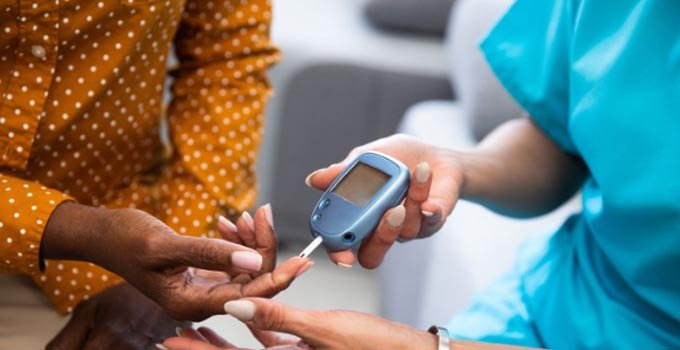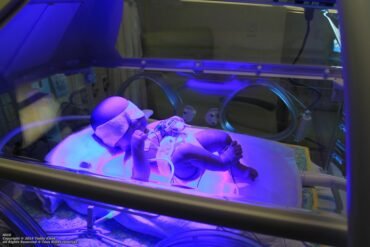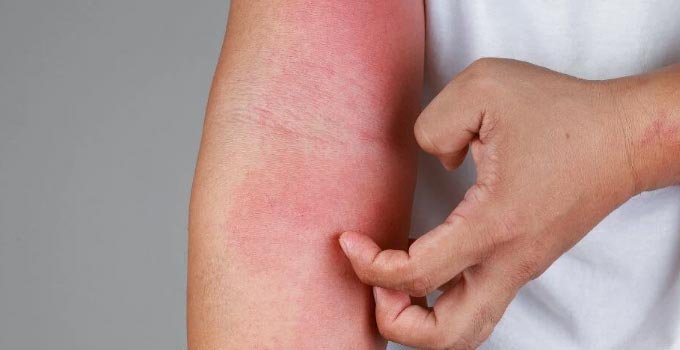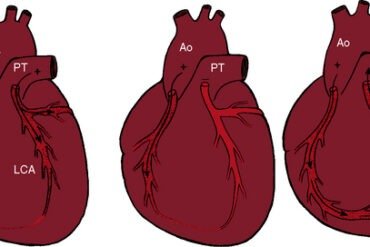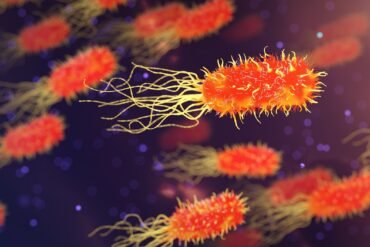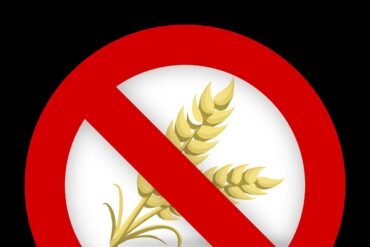Heart Attack Warning Signs: Know the Symptoms
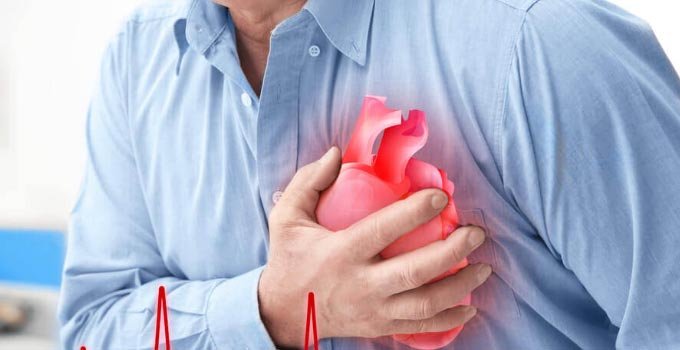
Table of Contents
- Understanding Heart Attacks: What You Need to Know
- Recognizing the Early Warning Signs of a Heart Attack
- Key Symptoms of a Heart Attack: What to Look For
- Taking Immediate Action: What to Do If You Suspect a Heart Attack
- Seeking Medical Help: Importance of Emergency Response and Treatment
Understanding Heart Attacks: What You Need to Know
A heart attack, also known as myocardial infarction, occurs when the blood flow to a part of the heart muscle is blocked. This blockage is usually caused by a clot that forms in one of the coronary arteries supplying blood to the heart. Understanding heart attacks and their warning signs is crucial for early detection and seeking immediate medical help. Here’s what you need to know:
- Chest discomfort: One of the most common warning signs of a heart attack is chest pain or discomfort. It can feel like pressure, squeezing, fullness, or pain in the center of the chest that lasts for more than a few minutes or comes and goes.
- Upper body pain: Pain or discomfort in the arms, back, neck, jaw, or stomach can also be a symptom of a heart attack. Some people may experience these symptoms without any chest discomfort.
- Shortness of breath: Feeling breathless or having difficulty catching your breath, even when at rest, can be another warning sign. It may be accompanied by other symptoms such as chest pain.
- Cold sweat, nausea, and lightheadedness: Some individuals, especially women, may experience symptoms such as cold sweats, nausea, vomiting, or feeling lightheaded. These symptoms can occur alongside or without chest discomfort.
- Silent heart attacks: It’s important to note that some heart attacks may not exhibit the typical symptoms. These are called silent heart attacks and are more common in older adults or individuals with diabetes. Fatigue, malaise, or mild discomfort may be the only indications of a silent heart attack.
If you or someone around you experiences any of these heart attack warning signs, it is imperative to seek medical attention immediately by calling emergency services. Do not ignore or underestimate the symptoms, as timely intervention can save lives. Additionally, maintaining a healthy lifestyle that includes regular exercise, a balanced diet, and regular medical check-ups can help prevent heart attacks.
Remember, knowing the symptoms and being aware of the risk factors related to heart attacks can empower you to take control of your heart health. Stay informed and spread awareness among your loved ones, as early detection and prompt medical care are crucial for preventing severe complications and enhancing the chances of a full recovery.
Recognizing the Early Warning Signs of a Heart Attack
A heart attack, also known as myocardial infarction, occurs when the blood flow to the heart muscle is blocked. Recognizing the early warning signs can save lives and ensure prompt medical intervention. It is essential to be aware of these signs as they can vary from person to person, and some may experience subtle symptoms rather than the classic chest pain. Here are some common warning signs to look out for:
- Chest discomfort: The most common symptom is a feeling of pressure, tightness, or discomfort in the center or left side of the chest. It may last for a few minutes or come and go.
- Upper body pain: Pain or discomfort may radiate to the arms, neck, jaw, back, or stomach. It may feel like an ache, heaviness, or pressure.
- Shortness of breath: Difficulty breathing or feeling breathless, even during rest or with minimal exertion, could be a sign of a heart attack.
- Excessive sweating: Sudden, cold sweats without any apparent cause may indicate a heart problem.
- Nausea and vomiting: Some people may experience feelings of nausea, dizziness, or vomiting during a heart attack.
- Extreme fatigue: Unusual tiredness or exhaustion, especially in women, can be a warning sign. Fatigue may occur days or weeks before a heart attack.
- Light-headedness: Feeling dizzy or lightheaded, along with other symptoms, could be indicative of a heart issue.
It is crucial to note that not everyone experiences severe chest pain, and some may have minimal symptoms or attribute them to other causes like indigestion or anxiety. However, it is always better to err on the side of caution and seek medical attention if you or someone you know is experiencing any of these warning signs.
If you suspect a heart attack, call emergency services immediately. Acting swiftly can make a significant difference in the outcome. Do not drive yourself to the hospital, as it is safer to receive medical aid while awaiting transport.
Remember, recognizing the early warning signs and seeking prompt medical help can save lives. Familiarize yourself with the symptoms, take them seriously, and encourage your loved ones to do the same. Stay informed, stay healthy, and mitigate the risks associated with heart attacks.
Key Symptoms of a Heart Attack: What to Look For
A heart attack is a life-threatening medical emergency that occurs when the blood flow to the heart is blocked, usually due to a blood clot. Recognizing the symptoms of a heart attack is crucial as prompt medical intervention can save lives. Here are some key symptoms that you should be aware of:
- Chest pain or discomfort: This is the most common symptom of a heart attack. It often feels like a tightness, pressure, squeezing, or burning sensation in the chest that may last for several minutes or come and go.
- Shortness of breath: You may experience difficulty in breathing, even when at rest. This can be accompanied by a feeling of suffocation.
- Pain or discomfort in other areas: The pain may radiate to the arms, jaw, neck, back, or stomach. Some people may feel it only in these areas without any chest pain.
- Excessive sweating: Profuse sweating, more than what is usual for you, can occur during a heart attack.
- Lightheadedness or dizziness: You may feel lightheaded, dizzy, or experience a sudden loss of balance.
- Nausea or vomiting: Some individuals, particularly women, may experience nausea, vomiting, or indigestion-like symptoms during a heart attack.
- Extreme fatigue: Unusual and extreme tiredness, feeling exhausted even with minimal physical exertion, can be a warning sign.
It’s important to note that heart attack symptoms may vary between individuals, and not everyone will experience the classic symptoms. Some people may only have mild symptoms or no symptoms at all, especially women, older adults, or individuals with diabetes.
If you or someone around you experiences any of these symptoms, it is essential to take immediate action. Call emergency services right away and seek medical attention without delay. Remember, acting swiftly can significantly improve the chances of survival and minimize heart damage. Don’t ignore the symptoms or hesitate to seek help, as every second counts during a heart attack.
It is also worth mentioning that some heart attacks can be silent or go unnoticed, especially in individuals with certain health conditions or who are elderly. Regular check-ups and routine cardiac screenings are vital for early detection and prevention.
Being familiar with the key symptoms and knowing what to look for can potentially save your life or the life of someone you love. Stay informed, stay vigilant, and prioritize your heart health!
Taking Immediate Action: What to Do If You Suspect a Heart Attack
If you suspect that someone is having a heart attack, it is crucial to act quickly in order to increase their chances of survival. Here are some steps to follow:
- 1. Call Emergency Services: Dial your local emergency number immediately. Inform them that you believe someone is experiencing a heart attack and provide them with your location.
- 2. Stay Calm: While waiting for help to arrive, try to remain calm. Panicking can make the situation worse for both you and the person experiencing the heart attack.
- 3. Offer Aspirin: If the person is able to swallow and not allergic to aspirin, provide them with a 325 mg tablet. Instruct them to chew it slowly and swallow it to help minimize further damage.
- 4. Assist with Nitroglycerin: If the person has been prescribed nitroglycerin and has it on hand, help them take their prescribed dosage. Nitroglycerin helps relax blood vessels and improve blood flow to the heart.
- 5. Perform CPR if Necessary: If the person becomes unconscious and stops breathing, begin CPR (cardiopulmonary resuscitation) immediately. If you are unsure how to perform CPR, the emergency operator can guide you through the steps on the phone.
- 6. Help with AED: If an automated external defibrillator (AED) is available, follow the instructions provided with the device to administer an electric shock if necessary. Many public places have AEDs readily accessible.
Remember, it is always better to err on the side of caution when it comes to heart attack symptoms. Even if you are unsure if someone is experiencing a heart attack, it is important to seek immediate medical attention. Acting swiftly can make a significant difference in saving a life.
Seeking Medical Help: Importance of Emergency Response and Treatment
When it comes to heart attacks, time is of the essence. Recognizing the warning signs and seeking immediate medical help can make a significant difference in saving a life. Knowing the symptoms of a heart attack and acting promptly is crucial for ensuring the best possible outcome. Here, we will discuss the importance of emergency response and treatment in the event of a heart attack.
- Early Intervention: The sooner medical help is sought, the better the chances of survival and minimizing damage to the heart. Calling emergency services or going to the nearest emergency room is essential for receiving immediate care.
- Timely Diagnosis: Seeking medical assistance allows healthcare professionals to conduct necessary tests that can help confirm whether you are experiencing a heart attack or another medical condition. Accurate and early diagnosis ensures appropriate treatment is administered promptly.
- Immediate Treatment: Once diagnosed, timely treatment can be initiated. Prompt medical intervention can help restore blood flow to the heart, reducing the risk of complications and improving the chances of recovery.
- Access to Specialized Expertise: Emergency medical services provide access to healthcare professionals specialized in handling heart attack cases. These professionals are trained to handle emergencies, administer necessary medications, and perform life-saving procedures if required.
- Preventing Further Damage: Seeking medical help promptly can prevent further damage to the heart muscle. Timely intervention can help minimize the extent of heart muscle damage and improve long-term outcomes.
- Supportive Care: Emergency responders and healthcare professionals not only provide immediate treatment but also offer emotional support and reassurance during a stressful situation. Their expertise and guidance can help alleviate anxiety and fear associated with a heart attack.
Remember, a heart attack is a medical emergency that requires immediate attention. Ignoring the warning signs or delaying seeking medical help can have severe consequences. Familiarize yourself with the symptoms of a heart attack, such as chest pain, shortness of breath, dizziness, or discomfort in the upper body, and take prompt action if you or someone around you experiences these symptoms. Time is critical, and seeking medical assistance without delay can save lives.
If you suspect you are experiencing a heart attack, call emergency services immediately or go to the nearest emergency room. Your health and well-being are too precious to take risks.















